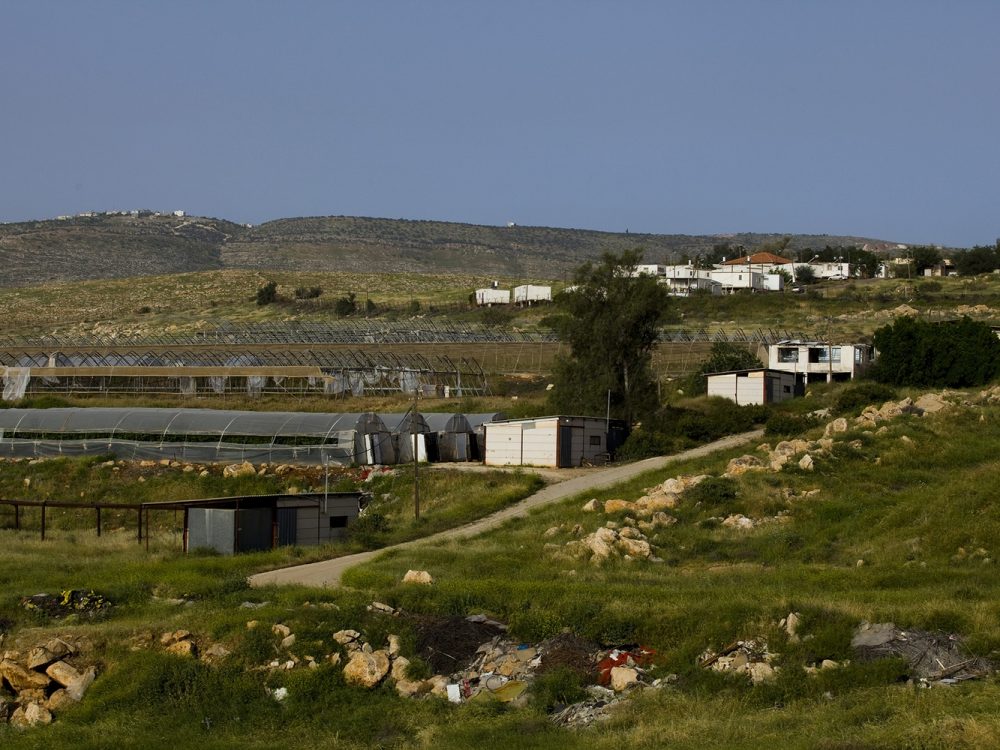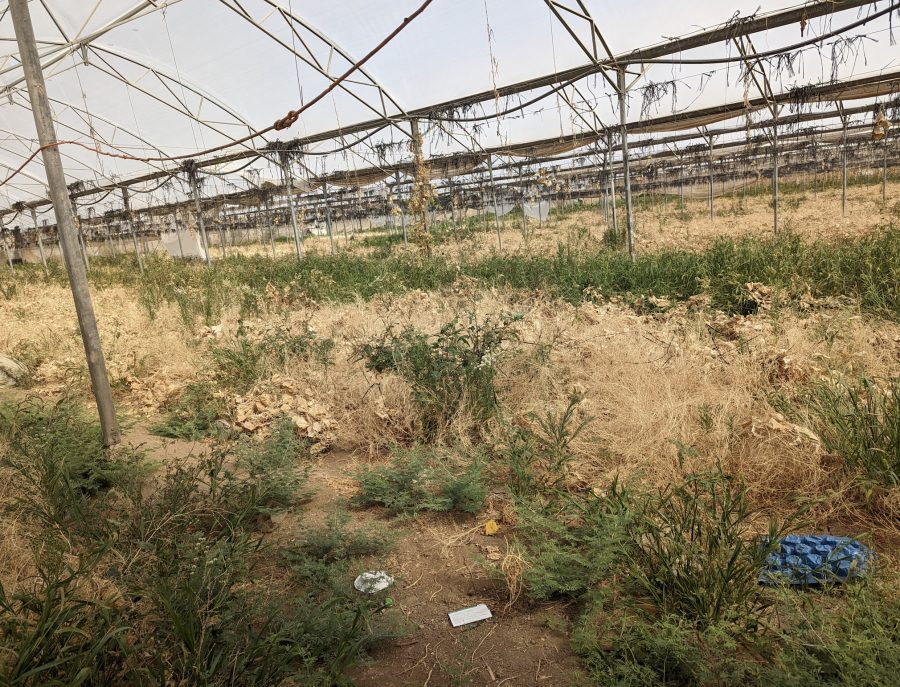‘In the West Bank, the Israeli settler population, numbering more than 500,000, consumes approximately six times the amount of water used by the Palestinian population of almost 2.6 million*.’
Palestinian human rights organistion, Al Haq
As we drive up the lane to the farm of Nasser Zubeidat, an electric fence comes into view. On one side, the Kingdom of Jordan, where property is owned, bought and sold freely. On Nasser’s side of the fence, the West Bank: a territory where many Palestinians live with the continual threat of losing their home and livelihood. As Nasser walks over to meet us, we can see where the latest demolition has taken place. Exposed tree roots and a torn canvas lining are all that’s left of what was an agricultural pool, vital to his farm.
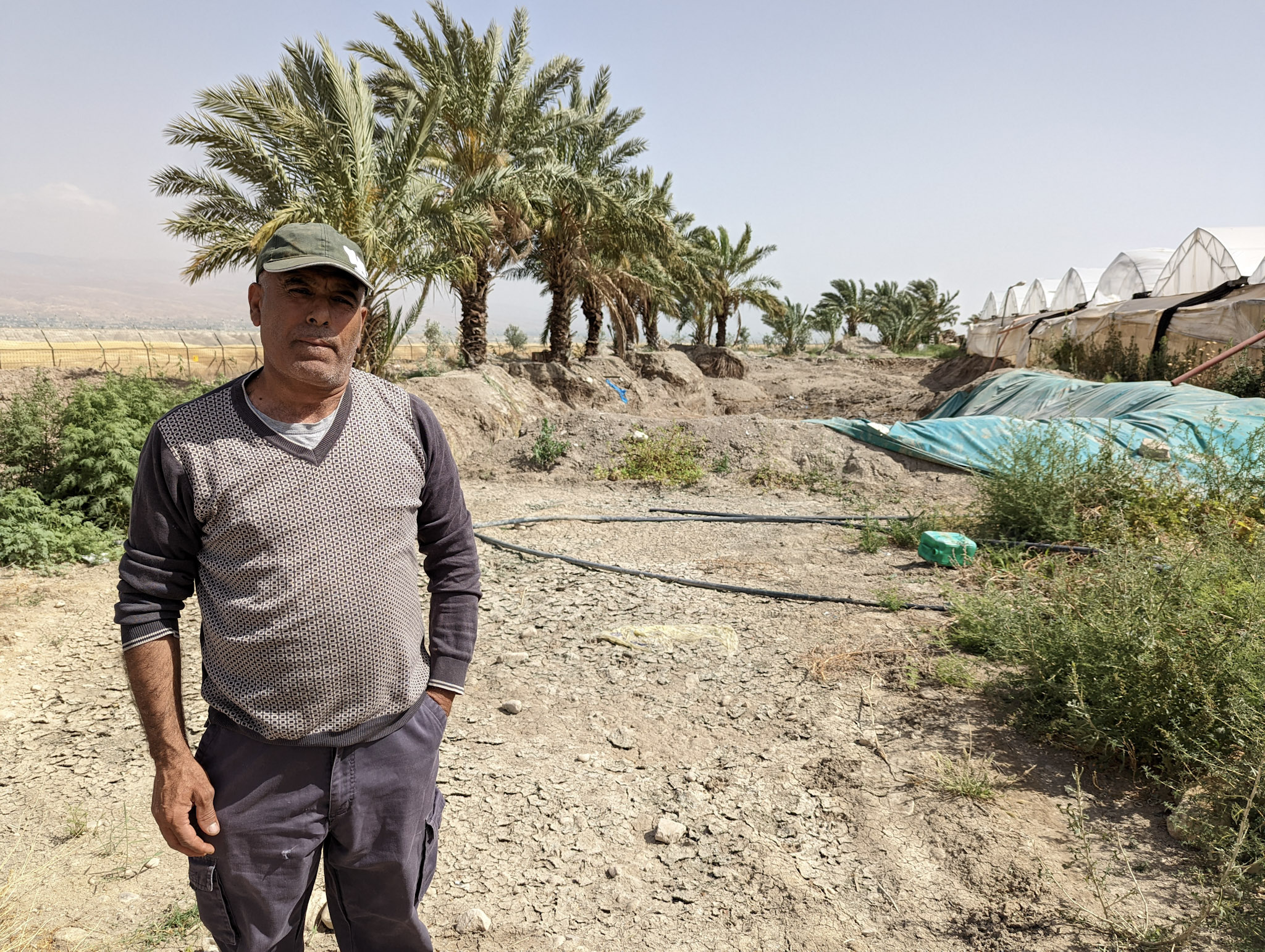
Nasser beside the destroyed agricultural pool
On the morning of the 12 May 2022, eight Israeli military jeeps and an excavator drove up the lane to Nasser’s farm with orders to demolish the agricultural pool used to store water for his crops. He had had this agricultural pool for the last 27 years, and it had recently been renovated after a fire.
‘I used to have fish in the pool… I used to invite our neighbours to come over to fish here, and they could keep all the fish they caught.’
Nasser, Jordan Valley
Like most of the Jordan Valley, Nasser’s land is in Area C, a large area of the West Bank, rich in natural resources. During the Oslo Peace Accords, the Israeli government agreed to gradually handover Area C to the Palestinian Authority to enable the establishment of a Palestinian state. However, this process was never completed. Israel have retained full military control over this vital region and severely curtail Palestinian development here.
Between 2009 and 2018 only two per cent of all requests submitted by Palestinians for building permits in Area C were granted. As a consequence, many Palestinians build structures required for living and agriculture without permits. These structures are considered illegal under Israeli law and are at risk of being demolished. Palestinians usually receive a ‘demolition order’ to warn them in advance, but Nasser did not.
‘Between 2019 and 2020, only 32 building permits were issued to Palestinians in Area C, while over 18,000 plans and permits were approved for Israeli settlers.’
Demolitions such as these are on the rise across the West Bank. According to the EU office in Palestine, demolitions carried out by Israeli authorities in the West Bank reached a 5-year high in 2021. A total of 904 structures were demolished, a 6% increase compared to 2020. Compensation is not given out by the Israeli authorities to the Palestinian owners of the structures they demolish. In Nasser’s case, this means that the 35,000 NIS (approx. €10,000) that he tells us he still owes for the renovations of the pool has been wasted. His crops of cucumbers and tomatoes, worth another 35,000 NIS, died shortly after the destruction of the pool due to lack of water.
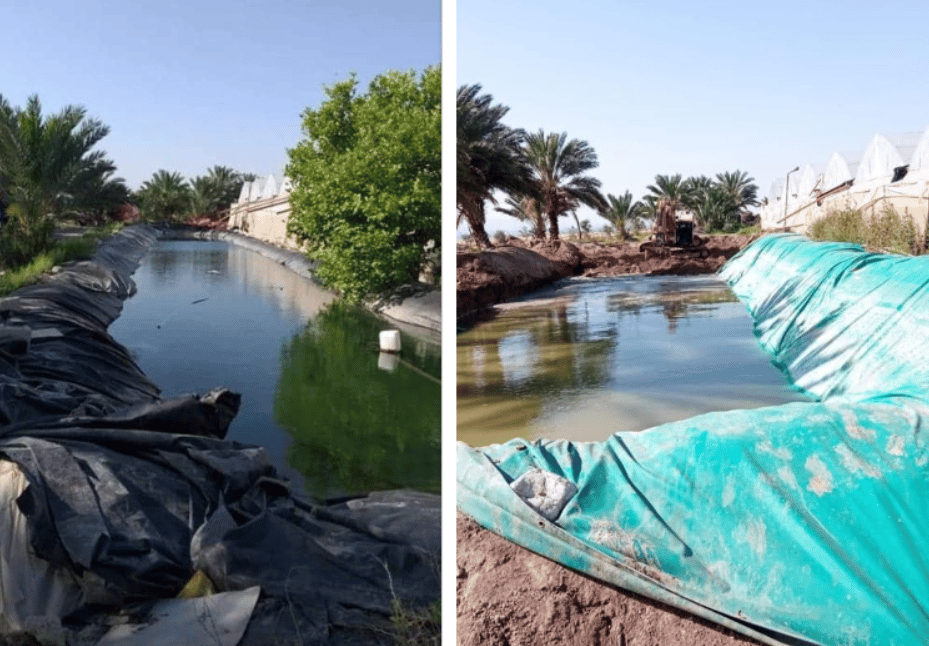
The agricultural pool before and during the demolition
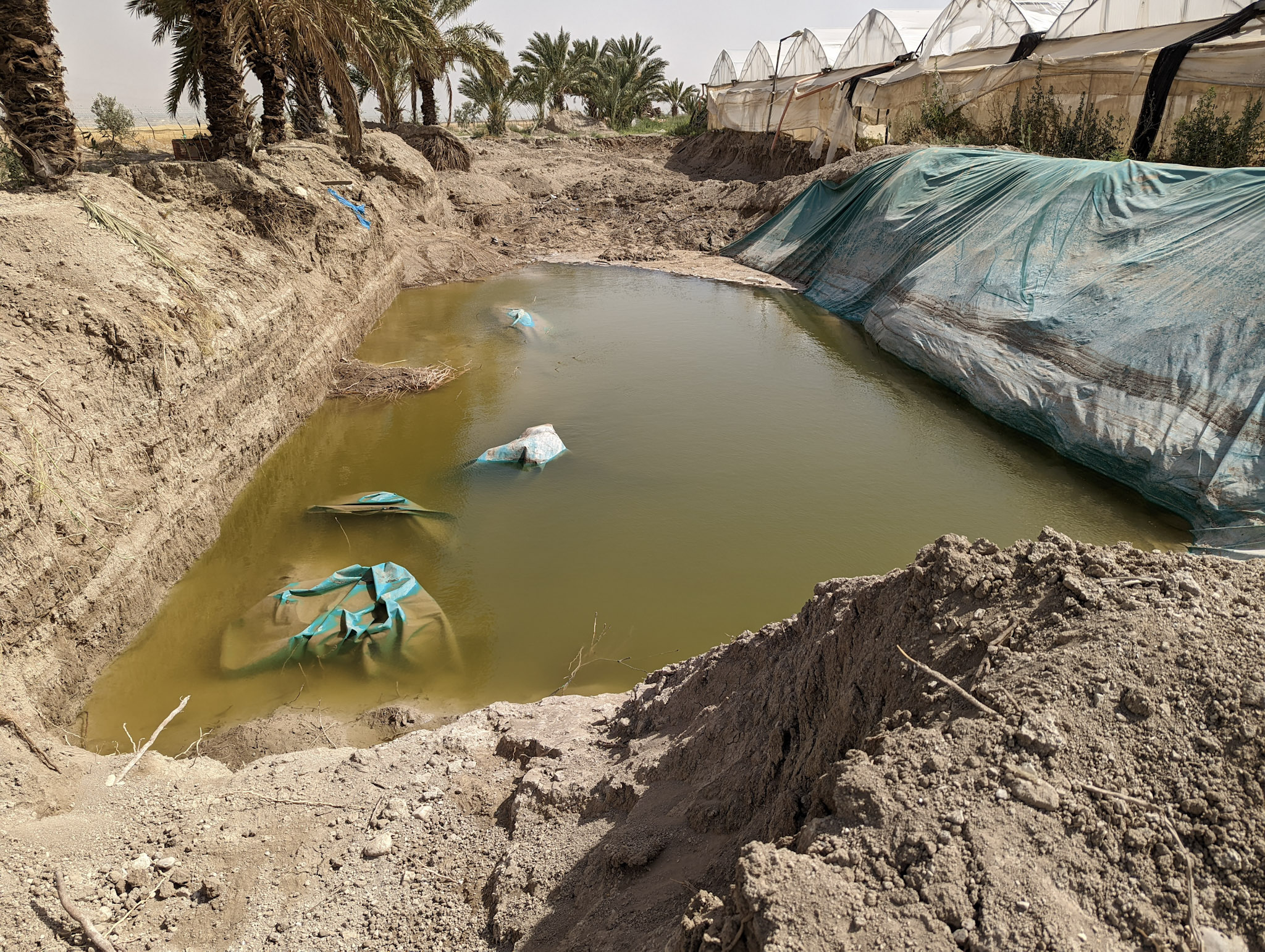
The agricultural pool after the demolition
Nasser’s family are originally refugees, who were forced to flee their hometown of Biʾr as-Sab in 1948. It is now known as the Israeli city of Be’er Sheva. He says that nothing has changed since 1948:
‘We want to live a normal life, and forget what they did to our fathers and grandfathers, but they just want to keep controlling us. They just follow us wherever we go.’
Nasser’s pool is one of several agricultural pools that have been demolished in the Jordan Valley in the last few months. The pools are particularly vital to Palestinian farmers in this region due to the scarcity of water. The Jordan Valley region actually has abundant water resources, and was known by many as the ‘breadbasket of Palestine’ before the occupation. It comprises one-fifth of the land of the West Bank, but contains one-third of its underground water reserves. Palestinian human rights organisation, Al Haq has said that there is ‘significant inequality in terms of access to water between Israelis and Palestinians’, a policy that is ‘deliberately discriminatory’.
‘Israel has established an extensive network of water mains and reservoirs across the West Bank, to service its many settlements and associated industries. However, permission is seldom granted to rural Palestinian communities to connect to it. Even when the pipes run through their land.’
An Israeli settlement farm in the Jordan Valley. Photo by Simon Rawles/Oxfam via Adalah
In 2011, Al-Haq found that the approximately 500,000 Israeli settlers then living in the West Bank consumed around six times the amount of water used by the Palestinian population of almost 2.6 million. This discrepancy in water use is even greater when water is used for agricultural purposes, in which case settlers have up to 18 times more water available than Palestinians in the West Bank.
Nasser’s crops, dried out after the agricultural pool was destroyed
Nasser recounts what he was told during the demolition:
‘The Israeli authorities accused me of stealing water from settlers, even the rainwater I collect.’
Nasser, Jordan Valley
We asked Nasser if he thinks the Israeli authorities will demolish the rest of his farm but he does not think they will be so overt:
‘They want to destroy our will to be here. They want to harass us and make things so difficult that we will leave by ourselves. I don’t have any income to pay my debts back, and I’ve lost an entire season of crops.’
Nasser, Jordan Valley
Few Palestinians in Area C are permitted to connect to the piped water network supplying the nearby Israeli settlements (which are illegal under international law) with water 24-hours a day. Meanwhile, Israeli authorities repeatedly demolish Palestinian means to collect rainwater. According to Palestinian human rights organisation, Al Haq;
‘These policies and practices are aimed at forcibly transferring Palestinian communities from their homes, thereby emptying the most fertile and water-rich areas of the West Bank of its Palestinian inhabitants.’
Despite the situation he faces, Nasser is still hopeful about his own resilience and the solidarity of the international community: ‘I know that God loves us, and that’s why he sends people to support us here.’ He told us he hopes we can return again in future to catch fish in his rebuilt pool.
Take action!
-
Use our quick template letter and contact links to send this eyewitness story to your elected representatives urgently. Ask them to call upon the Israeli government to ensure Palestinians unobstructed right to water, in compliance with international law.
-
Learn more about water inequality in the West Bank on our water page.
What does international law say?
*The Israeli settler population in the West Bank now exceeds 650,000 and the Palestinian population in the West Bank now exceeds 2.7 million.
by EA Billy- June 14, 2022
Share now


